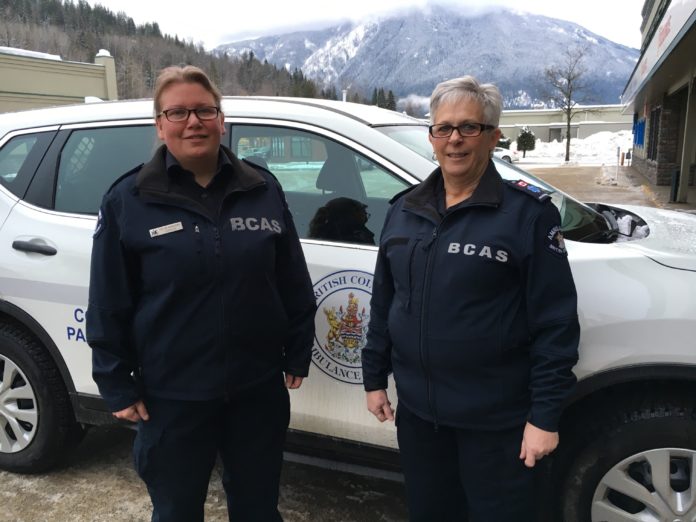Canada has implemented the first Community Paramedicine Program on a province-wide basis, and the community of Revelstoke will gain the benefit.
This program has been implemented with a focus on rural and remote communities having better access to primary health care, by adding community paramedics to augment emergency response capabilities.
Local paramedic Caralea Taylor told the Revelstoke Current, “For example, a patient with diabetes that is having trouble managing the condition, we could go into their home, provide education and manage that disease at home so they do not have to go to the hospital.”
The overall program is designed to help bridge the gap between health service and local primary care teams. The service will allow for patients to be in the comfort of their own home while the community paramedics come to the door, and follow up with health care checks and health maintenance for those that suffer from congestive heart failure, chronic obstructive pulmonary disease and diabetes.
For those that have a family member that may be getting on in years, but are strong in mind and are stubborn to medical check ups, this could be an option to assist the elderly and remove the stress from the younger, concerned family member.
Kellie Christy has been a paramedic in Revelstoke for 27 years and explained how this is a fantastic new program that can help those that are known to be stubborn, and refuse to visit the doctor on a regular basis.
“If a family member doesn’t want to take the issue on themselves, they can speak to the family members health care physician-express concern- and then it is up to the the family physician to send a referral to us indicating what services to provide.”
The community paramedics will provide the services that have been outlined in the patients care plan, alleviating any concern for friends and family members.
Seniors who are living alone with little or no support, may need a professional to check in on them. Visits from the local paramedics could potentially live longer lives and reduce their reliance on unnecessary 911 calls.
The great news; this program comes to no cost to the patient. So for those living on income assistance, or a limited pension, do not have to worry about an added fee.
The first roll out of this program was roughly two years ago in British Columbia. Both Christy and Taylor have been in training for this particular program and are just a few short weeks away before completion.
The hope is that this program will be in full force in early February. If this program would be of a benefit to yourself or a family member- talk to your family doctor and begin the conversation about a referral for yourself, or someone you love.




